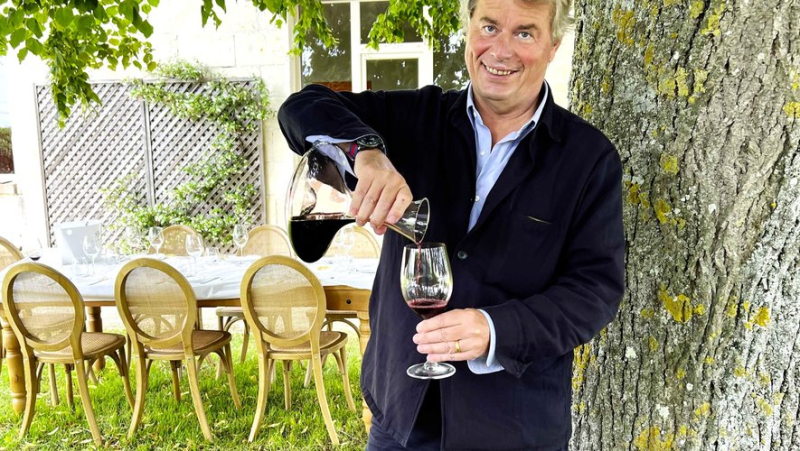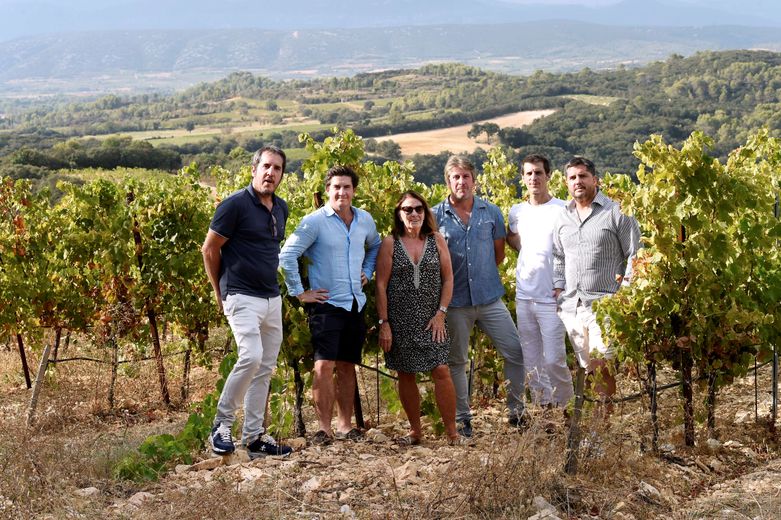“The appreciation of Languedoc wines has changed dramatically,” according to the Green Guide to French Wines

“Il n'y a aucun mépris de la part des dégustateurs”, assure Denis Saverot.
Denis Saverot, the editorial director of the Revue du vin de France (RVF) and the green guide to the best French wines, responds to the critics of the Guibert brothers' estate, furious at having only one star and demanding “a little respect” and less “contempt”. Denis Saverot also and above all returns to the situation of the wines of Languedoc and Roussillon, which he does not consider “mistreated” by his guide but which very rarely reach the top of the charts.

The Guibert family, at the Daumas Gassac farmhouse, made choices that no longer paid off, according to Denis Saverot. SYLVIE CAMBON
How do you explain that there is still such a gap in the rankings between Languedoc on one side, Bordeaux and Burgundy on the other?
We can always try to compare them, but you are talking about historic regions that have great vintages that are centuries old and centuries old. Languedoc is making significant progress and we are here to highlight this, but Burgundy and Bordeaux are still ahead of schedule. For the magazine, in April 2023 we did a report on Languedoc entitled “The time of great wines” and we said that there were wines of world-class stature.
Languedoc has wines of world standards that are the best markets in France. For the second edition of the guide, in 1997, Languedoc, without Roussillon, had 37 estates cited, including 32 without stars and only “one star” (five). He has 77 today, more than double that, with two “three stars”, 17 “two stars”, 30 “one star” and 28 without a star.
The appreciation of Languedoc has changed a lot. But the prices of great Burgundy wines and those of Languedoc are very different, this is not a judgment of the Revue du vin de France. It is the perception among the public and at the market level.
The guide is not supposed to taste based on price…
No, you are right, price is not a criterion when tasting, but it is another perspective. Whether there is an under-representation in the guide is debatable. The guide comes out, it's an opportunity to debate.
Languedoc, given its territory, weighs very little in stars on the total, no?
I hear you, but it's not just a question of surface area. Languedoc is the densest in the world, but for a long time it was an everyday wine. Burgundy is a small territory and has a huge number of highly valued estates.
You compare with 1997, but that was at the very beginning of the Languedoc revival, with a handful of winegrowers. For years now, there has been stagnation, if not regression…
That's your analysis. I don't have all the elements in mind. I still think that the position of Languedoc has been affirmed in the green guide. It is also certain that there is now competition from other regions and that Languedoc is not always favoured by climatic conditions, particularly global warming.
Julien Zernott, from the Pas de l'Escalette estate, explains that wines that are too concentrated have more difficulty, unlike more fashionable Jura or Savoie wines. What do you think about that ?
He's right. Languedoc reds are quite full-bodied and today the demand is for lighter, less alcoholic, more digestible wines, especially for women and young people. People drink rosé with ice cubes. Julien Zernott was smart enough to invest in the heights. But many winegrowers inherit certain lands and cannot afford to choose.
What do you say to Roman Guibert who speaks of contempt and a lack of respect from your guide for the Daumas Gassac estate and its wines ?
There is no contempt on the part of the tasters. Daumas Gassac marked the history of Languedoc by making choices of Bordeaux grape varieties, their wines were noticed. But today when an amateur seeks the deep identity of Languedoc, he does not look for it in Bordeaux grape varieties.
This is an estate that has made choices that are no longer in tune with the times. That does not take anything away from the merit of Roman and his brothers. I knew Aimé Guibert well. He was very cunning and intelligent. But there was still a contradiction: he defended regional identity against a big project (Mondavi, Editor's note) but he planted Bordeaux grape varieties.
You are talking to me about Daumas Gassac but there are many estates that are happy to be in the guide and that promote Mediterranean grape varieties. The guide is the guide to the best estates. The fact of being there, even without a star, is already a consecration. What makes the charm of Languedoc is that you can still get a thrill by discovering an estate that is not yet too well-known.
About the Grange des pères which no longer wants to send you samples, a comment?
Laurent Vaillé was an exceptional winemaker with a lot of temperament. He was reserved about criticism. He didn't want to send samples, or receive journalists. We wrote to him and he wasn't happy.
Bernard Vaillé, his brother, also complains that the RVF announced that it was closing down…
I spoke to him on the phone and apologized. It was a mistake. We had mentioned rumors in an echo, with a lack of verification.
I subscribe to read the rest




